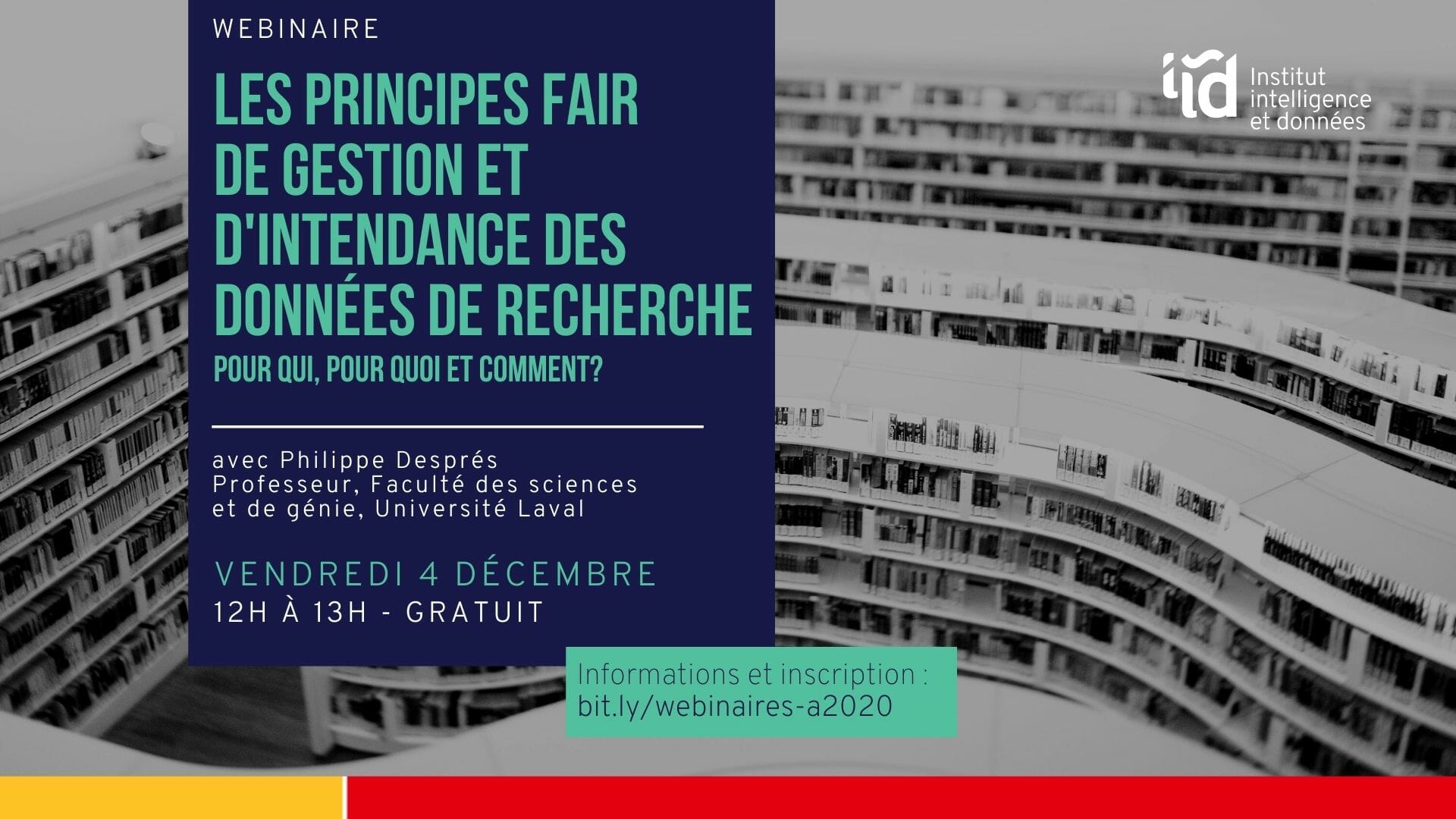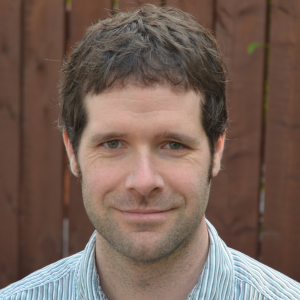
The FAIR principles of research data management and stewardship: for whom, for what and how?
This webinar is intended as an introduction to the FAIR (Findable, Accessible, Interoperable, Reusable) principles in research data management and stewardship.
Activity offered in French only
Data are at the heart of scientific research and substantial funds are dedicated to their production. Until recently, little attention has been paid to what happens to data after a project is completed. Thus, colossal amounts of data are wasted every year.
The federal government, like other organizations and jurisdictions around the world, has adopted a new policy on the management of research data that places new obligations on researchers and their institutions with respect to data management and stewardship. These obligations will be reviewed, as well as the manner in which they can be put into practice.
In this respect, the FAIR principles (Findable, Accessible, Interoperable, Reusable) will be presented.
This webinar is presented by IID (Institute Intelligence and Data) of Université Laval
Speaker
Associate Professor, Faculty of Science and Engineering, Université Laval
Assistant Director, Big Data Research Center (CRDM)
Co-Leader of the Sustainable Health Axis, OBVIA
Data Architect, PULSAR
Chief Data Director in Health Sciences, CHU de Québec Research Centre
Philippe Després is an Associate Professor in the Department of Physics, Engineering Physics and Optics at Université Laval. He is also a member of the Cancer Research Centre of Université Laval, as well as a Medical Physicist at CHU de Québec – Université Laval and a regular researcher of its affiliated Research Centre.
After receiving a Master’s degree from Université Laval (2000, Physics) and a Ph.D. from the Université de Montréal (2005, Physics), he completed a postdoctoral internship (2005-2007) at the University of California, San Francisco in the field of biomedical engineering and molecular imaging. His research projects focus on the hardware and software aspects of medical imaging modalities, notably on tomographic reconstruction. He pioneered high-performance computing (HPC) approaches with commodity graphics hardware (GPUs) that led to innovative applications in image processing/reconstruction and radiation dose calculations, including a fast GPU-based Monte Carlo engine to simulate energy transport in matter (GPUMCD). As a HPC expert, he is also involved in data-driven research approaches, data infrastructures and FAIR-compliant research data management. In this regard, he is the Chief Data Officer at CHU de Québec – Université Laval Research Centre and the Data Architect of the PULSAR health research platform,
He is also the Assistant Director of the Big Data Research Center (CRDM) at Université Laval, and the Co-Leader of the Sustainable Health axis of the International Observatory on the Societal Impacts of AI and Digital Technology (OBVIA).
Let’s keep in touch!
Would you like to be informed about IID news and activities? Subscribe now to our monthly newsletter.
